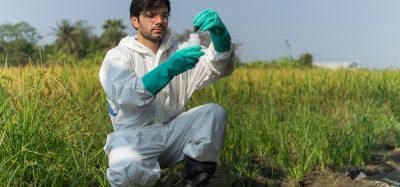UK government bans plastic straws to reduce plastic waste
Posted: 22 May 2019 | New Food Magazine | No comments yet
Environment Secretary Michael Gove has confirmed a ban on plastic straws in England following overwhelming public support for the move.


Following an open consultation, a ban on the supply of plastic straws will come into force in April 2020. The ban will include exemptions to ensure that those with medical needs or a disability are able to continue to access plastic straws.
There are instances where using plastic straws is necessary for medical reasons and the government will therefore ensure that those that need to use plastic straws for medical reasons can still access them. Registered pharmacies will be allowed to sell plastic straws over the counter or online. Catering establishments such as restaurants, pubs and bars will not be able to display plastic straws or automatically hand them out, but they will be able to provide them on request.
The government has said it believes this strikes the right balance between reducing environmental impact while protecting the rights of people with medical conditions and disabilities. It said it will also carry out a stocktake after one year to assess the impact of these measures and whether the balance is correct.
“Plastic straws are sometimes the only type of straw that work for disabled people due to their flexibility and ability to be used in hot and cold drinks,” said Lauren West, Trailblazers Manager at Muscular Dystrophy UK. “While we appreciate the need to reduce the use of plastics, traditional single-use straws are essential for some disabled people. If disabled people cannot access plastic straws when out it could put their health at risk as they may not be able to drink and could become dehydrated.
“We’re pleased the government has recognised this in its proposals put forward today. We would encourage Defra to continue consulting disabled people and groups like Trailblazers to ensure we are not disadvantaged or targeted and stigmatised for using single-use plastics.”
Even though non-plastic alternatives are readily available, it is estimated that 95% of straws are still plastic. Cleaning up the effects of littering costs local government millions of pounds every year, with costs also imposed on the tourism and fishing industries.
“Urgent and decisive action is needed to tackle plastic pollution and protect our environment,” added Environment Secretary Michael Gove. “These items are often used for just a few minutes but take hundreds of years to break down, ending up in our seas and oceans and harming precious marine life. So today I am taking action to turn the tide on plastic pollution, and ensure we leave our environment in a better state for future generations.”
Related topics
Beverages, Environment, Food Waste, Packaging & Labelling, Regulation & Legislation, Sustainability









